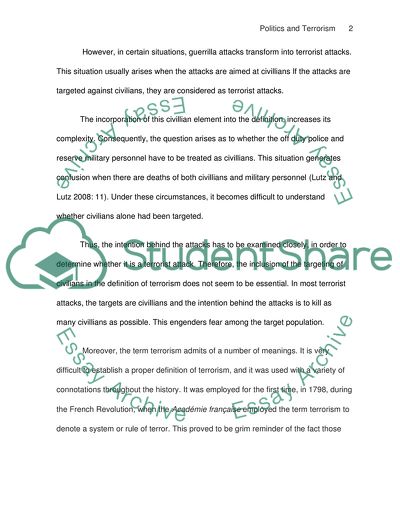Cite this document
(Political and Criminal Objective Term Paper Example | Topics and Well Written Essays - 3500 words, n.d.)
Political and Criminal Objective Term Paper Example | Topics and Well Written Essays - 3500 words. Retrieved from https://studentshare.org/politics/1743137-politics-terrorism
Political and Criminal Objective Term Paper Example | Topics and Well Written Essays - 3500 words. Retrieved from https://studentshare.org/politics/1743137-politics-terrorism
(Political and Criminal Objective Term Paper Example | Topics and Well Written Essays - 3500 Words)
Political and Criminal Objective Term Paper Example | Topics and Well Written Essays - 3500 Words. https://studentshare.org/politics/1743137-politics-terrorism.
Political and Criminal Objective Term Paper Example | Topics and Well Written Essays - 3500 Words. https://studentshare.org/politics/1743137-politics-terrorism.
“Political and Criminal Objective Term Paper Example | Topics and Well Written Essays - 3500 Words”, n.d. https://studentshare.org/politics/1743137-politics-terrorism.


